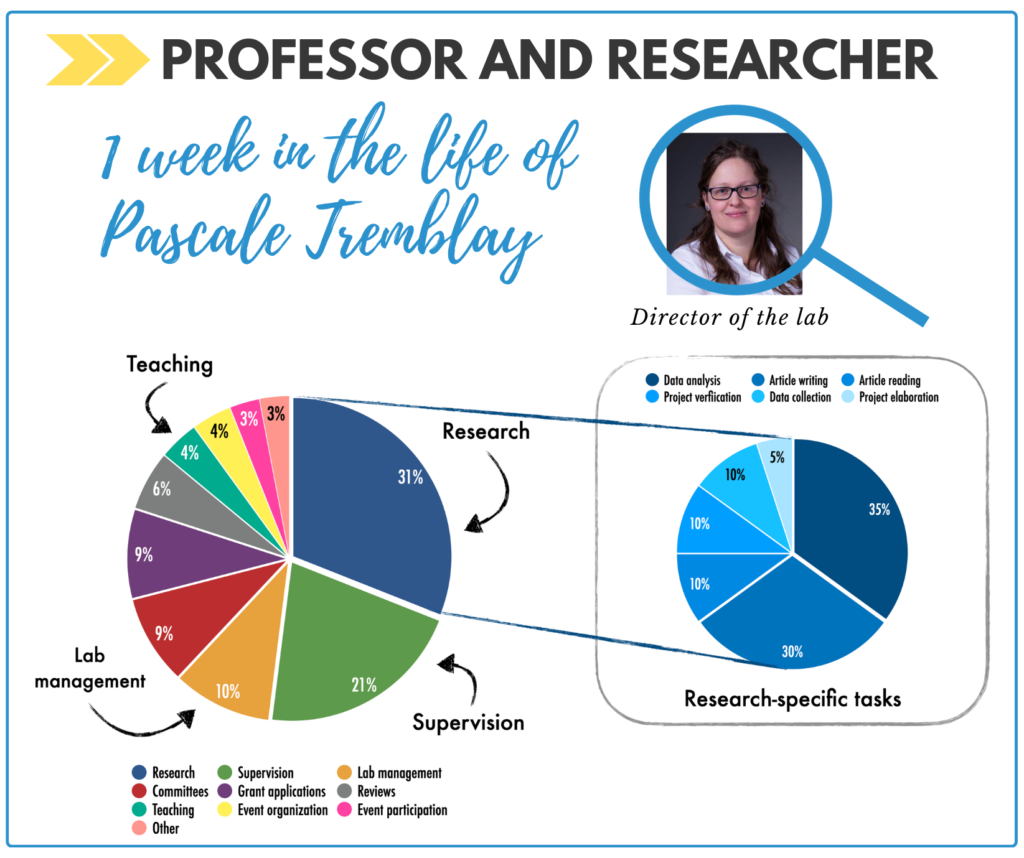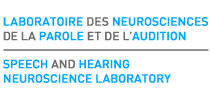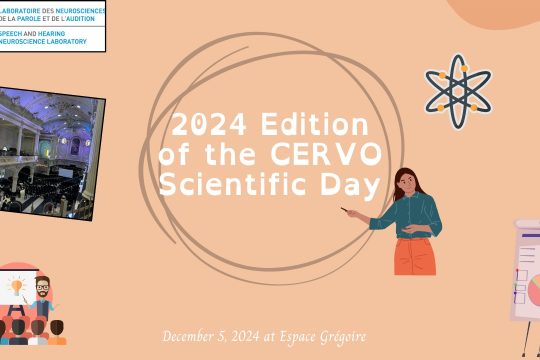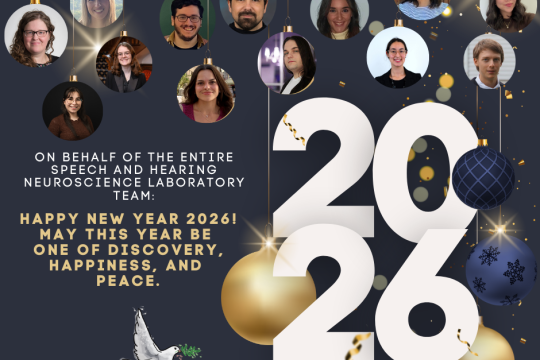When we arrive in the morning, she is already there. When we leave in the evening, she is still there! Seating at her large desk with headphones and a supply of tea, she only moves to attend meetings, classes, or to the laboratory where her students are working. Who are we talking about?
We are, of course, talking about Pascale Tremblay, the director of our lab! She is a full professor at Laval’s Faculty of Medicine – Department of Rehabilitation, and a researcher at the CERVO Research Center.
The work of university professors is extremely diverse and not well-known. A professor must contribute to the education of students at all academic levels through teaching and student supervision. They also contribute to the advancement of scientific knowledge in their field through cutting-edge research. Additionally, professors have a duty to contribute to university life by participating in various committees. They must also contribute to the scientific community in their research area by evaluating grant applications for funding agencies such as FRQ and NSERC, reviewing scholarship applications, peer-reviewing articles for scientific journals, and assessing theses and dissertations produced by students from other universities… The tasks are numerous!
University research can take place on the campus of Université Laval, but professors in the health field generally work in research centers that allow them to use shared resources such as infrastructure, equipment, and human resources.
So, what does Pascale’s typical week look like? In her case, classroom teaching only takes a small portion of her time – as she has obtained competitive grants from several agencies, she is occasionally able to get course releases, which allows her to dedicate more time to research. That doesn’t mean she’s idle! Running a laboratory involves developing a research program (Pascale’s program is in cognitive neuroscience of language), applying for funding from grant organizations, and supervising student researchers, as well as speech therapy students, interns, assistants, and research professionals. In short, it’s like running and managing her own mini-enterprise!
Moreover, Pascale, like her colleagues, is involved in organizing scientific activities such as international conferences, as well as events for the local scientific community and activities directed at the general public.
The diagram below shows the average breakdown of Pascale’s tasks in her 68-hour workweek.




